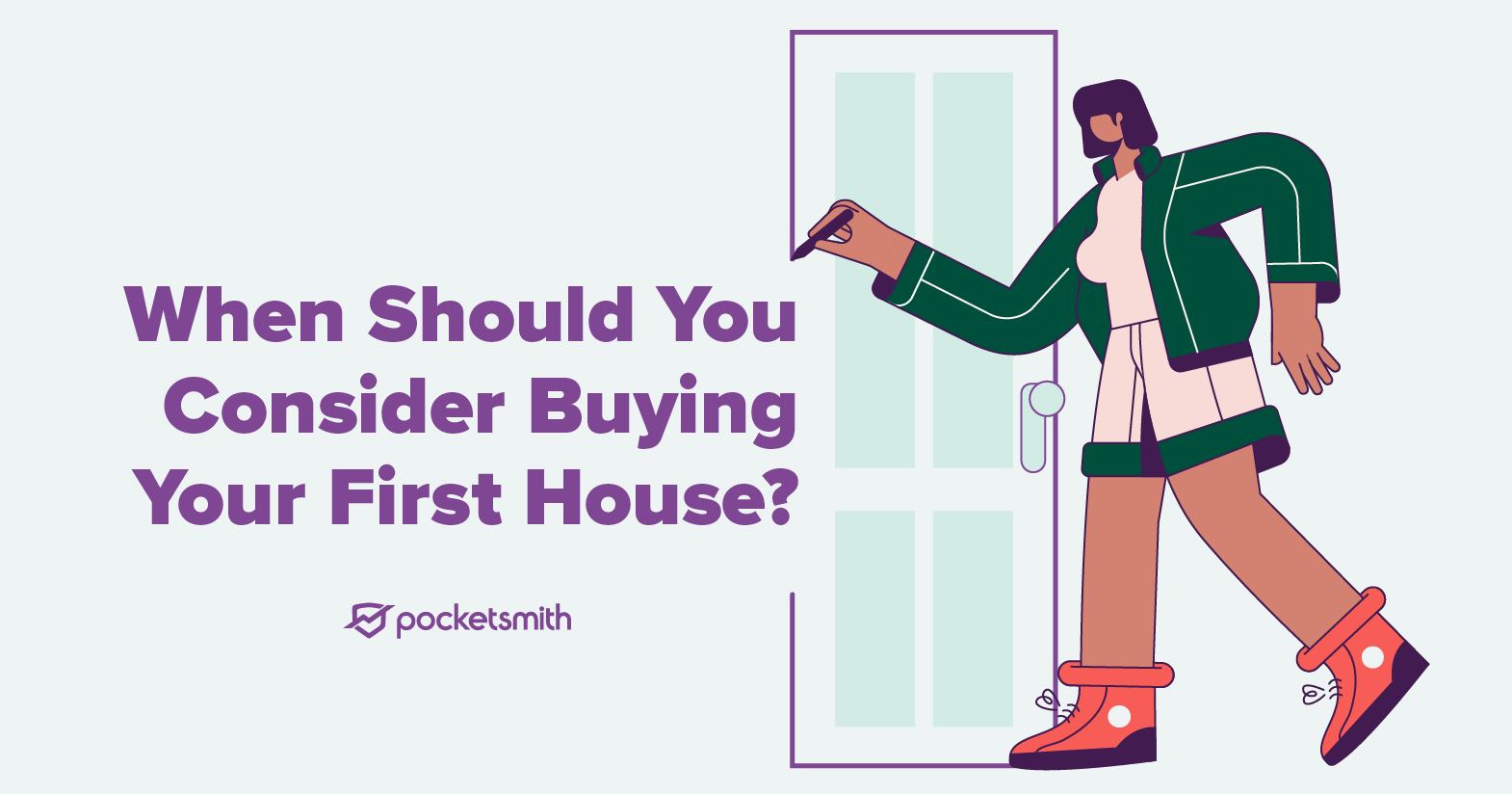
No matter where you live, owning a home is often seen as one of the milestones to becoming a successful and independent adult. Although it may seem that you’re expected to buy a house, it can be a serious dilemma trying to pinpoint exactly when you should start considering this investment — especially in 2021.
When taking into consideration how tumultuous life can be (both mentally and financially) as you go through your 20s, buying a home falls to the wayside for many. Achieving financial independence and security should take precedence over goals such as homeownership. However, if you think you might be ready to become a homeowner, then keep reading!
Here are some of the main indicators that you may be ready to buy your first home.
The easiest way to mark when you should start considering purchasing your first home is with your DTI (Debt-to-Income Ratio). Your DTI is simply a comparison of your monthly debts against your monthly income as a percentage. You should try to aim for a DTI of less than 50%. A great way to help keep track of your DTI is through an income and expense statement.
The nuances of your DTI are encompassed by the different financial situations that people are in at different times in their lives. Having a higher percentage of DTI doesn’t mean you’re failing or are a long way from owning a home, it just means that if owning a home is something you want to accomplish soon, then you’ll need to pay closer attention to your finances.
The early years of adulthood are not only a tumultuous time mentally and financially, they are also a time when many people are their most rambunctious self. Before you fully settle into adulthood, you may want to adventure, explore, and evaluate who you want to be and what you truly want out of your life. For this reason, very few people feel ready to consider buying a house until they have found a place that they always want to come back to, and that’s when they buy a home.
Buying a house doesn’t mean the curiosity and energy to experience life are gone. It just means that you aren’t as interested in moving your residence from place to place anymore. Some people get the feeling that they will always want to come back to the place they were raised, so they might never want to ‘speed up’ and move to different places. Others may not feel ready to slow down until they are in their 40s or later, so it takes a while for them to feel ready to consider buying a home.
One of the heaviest influences on when you should start considering becoming a homeowner is when you begin thinking about starting a family. Although it’s not a necessity to buy a home to have a family, it is a good idea to have a permanent residence for your children to grow in as frequent moving has been shown to negatively impact a child’s growth.
With that said, you don’t need to have a family to buy your first home either! Although this step in life can motivate many people to become homeowners, there are many benefits to owning a home while you’re single too. A starter home can help you begin to build equity, and can be a great financial investment in the long run.
If, after reading this far, you feel ready to start considering a home, look into programs and loans that are designed to help first-time homebuyers. Most countries offer some sort of assistance that can help you skip the time of saving up for a large-enough down payment. Here’s a quick list to give you an idea of what’s out there:
United States
FHA loans: The Federal Housing Administration allows a credit score as low as 500 to be approved for a mortgage. If the credit score is higher than 580 then you can have a down payment as low as 3.5%.
Canada
First-Time Home Buyer Incentive: This will provide you with 5% or 10% of the home’s value to use as a down payment.
United Kingdom
Help To Buy scheme: This program allows you to save up only 5% for a deposit, and you can borrow up to 20% of the total home’s value interest free for 5 years.
Australia
Family Home Guarantee: Allow the purchase of a home with as low as a 2% down payment for single parents with dependents.
New Zealand
Kāinga Ora Grant (First Home Grant): This grant can award up to $10,000 for a new home or up to $5,000 for an existing home.
So, the answer to the question of when you should consider buying your first home is a combination of your financial situation, feeling ready to slow down, and whether starting a family is on your horizon. Buying your first home is a major step, so make sure you feel ready to do so!